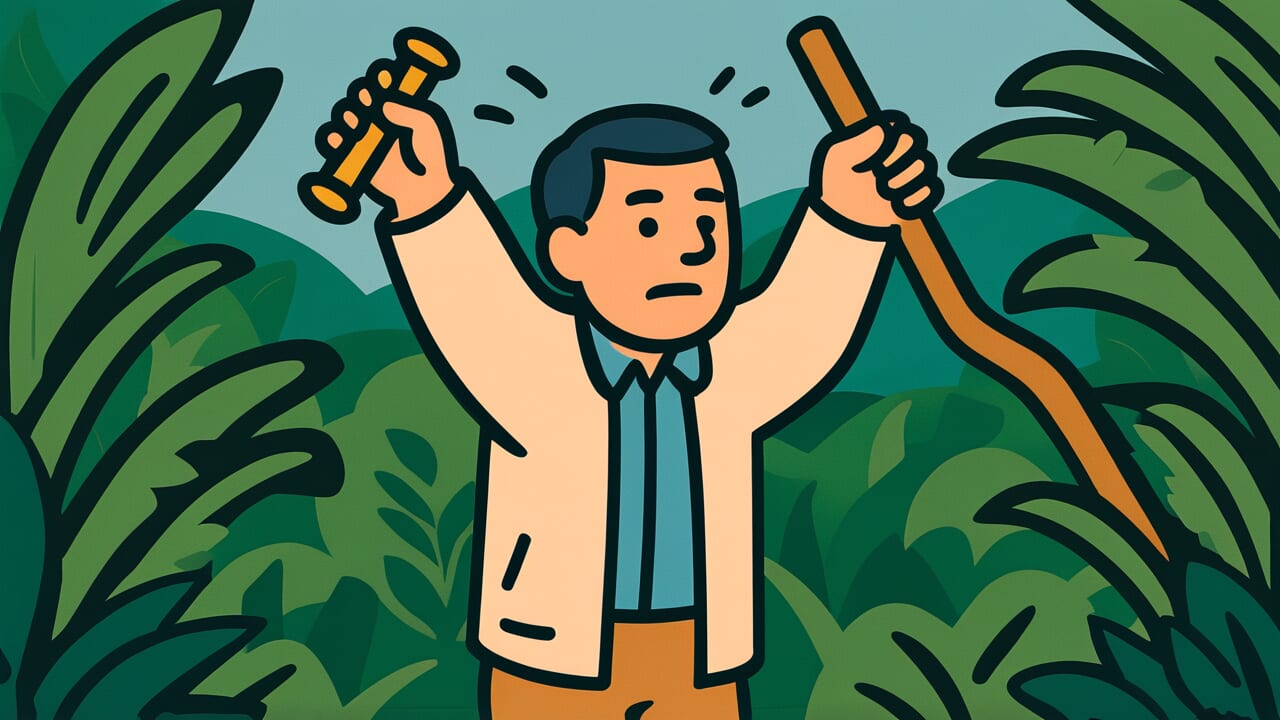How to Read “A pile of feathers breaks an axle”
Sōkei jiku wo oru
Meaning of “A pile of feathers breaks an axle”
This proverb means that small pieces of grass, when gathered together, can become strong enough to break a sturdy axle.
Similarly, things we dismiss as trivial can cause great harm when they accumulate. Each problem or weak element may seem insignificant on its own.
But when they pile up or combine, they can create unexpectedly serious damage or consequences. The proverb carries a warning about this danger.
People use this saying when pointing out the risks of ignoring small problems or underestimating weak opponents.
For example, tiny expenses adding up to create major debt. Small mistakes accumulating into serious accidents. A few complaints growing into organizational collapse.
Even today, this lesson remains important in risk management and organizational leadership.
Origin and Etymology
This proverb likely comes from ancient Chinese classics. “Sō” means a clump or gathering of grass, while “jiku” means an axle.
Each individual blade of grass is extremely light. You can easily break it with your hands. But when countless blades gather and wrap around an axle, they can break even a sturdy wooden axle.
In ancient China, vehicles were crucial for transportation. War chariots especially symbolized military power. A broken axle meant a fatal situation.
This proverb probably emerged from such real-life experiences and practical wisdom.
The saying came to Japan through Chinese classical texts. It appears in documents from the Edo period, showing that scholars used it long ago.
The proverb’s brilliance lies in using the concrete image of an axle to express the danger of dismissing small things.
The lesson that seemingly trivial things gain great power when accumulated resonated with people. This made sense in both agricultural and samurai societies throughout Japanese history.
Usage Examples
- We dismissed small cost reductions, but “a pile of feathers breaks an axle” – now the company’s finances are failing
- Each person’s complaint seems minor, but “a pile of feathers breaks an axle,” so we must address them early or the organization will collapse
Universal Wisdom
This proverb has endured because it exposes a fundamental human weakness. We stay alert to big, obvious threats but ignore small ones.
Anyone can easily pull up a single blade of grass. That’s exactly why we underestimate grass.
Yet the world consists of countless “small things.” One water drop is insignificant, but drops gather into mighty rivers that sometimes break through levees.
A single ant seems weak, but a colony can carry large prey. Throughout history, great empires often fell not to powerful enemies but to accumulated internal corruption.
This proverb teaches us about the limits of human perception. We focus on what stands out and overlook what doesn’t.
But real crises often creep up from places we can’t easily see. Our ancestors understood this blind spot in human nature.
That’s why they used the paradoxical image of something strong (an axle) broken by something fragile (grass). They wanted to warn us about this danger.
When AI Hears This
Bundled branches don’t actually become stronger because force distributes evenly. From a materials engineering perspective, the opposite happens.
Stress concentrates first on the weakest branch in the bundle. If you bundle ten branches and nine have equal strength but one is slightly thinner, bending force reaches that one first.
The moment this branch breaks, the force transfers to the next weakest branch. Destruction progresses in a chain reaction. Engineers call this “fracture propagation.”
So why does bundling make things stronger? The key lies in “resistance to bending.”
Engineering uses a concept called the second moment of area. When thickness doubles, bending strength doesn’t just quadruple – it increases eightfold.
Bundling creates a thicker cross-section, and this effect outweighs the risk of chain failure from individual weaknesses. But there’s a condition.
The bundled branches must press tightly together and unify through friction. Human organizations work the same way.
If gaps exist between members, one person’s failure triggers a chain reaction. But with close cooperation, the group’s strength far exceeds individual weaknesses.
Unity functions effectively because physical laws support it.
Lessons for Today
“A pile of feathers breaks an axle” teaches you about the importance of small daily choices. A little wasteful spending each day, slight carelessness, minor unhealthy habits – these seem trivial individually.
But when they accumulate, they might break the axle of your life.
At the same time, this lesson offers hope. Small efforts, when continued, also become great power.
Ten minutes of daily study, small acts of kindness, modest savings – these also accumulate into a solid foundation supporting your life.
What matters is developing the habit of not dismissing small things. Address problems while they’re small. Build good habits little by little.
These daily choices create your future self. Don’t wait until the axle breaks to feel regret.
Develop eyes that notice each blade of grass. That’s the most practical wisdom this proverb offers you in the modern world.



Comments